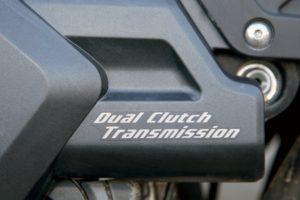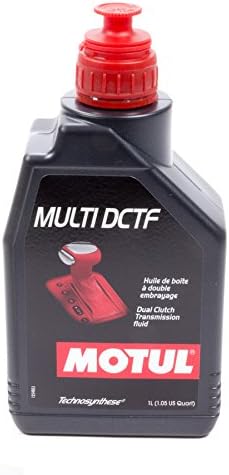There aren’t very many dual clutch transmission (DCT) fluid options available. When it comes to online purchases, the selection is very limited. In purchasing transmission fluid, you will need to know about the types of transmissions, various transmissions, and what specifically a DCT is.
Contents
What is a Dual Clutch Transmission?
Also called a Direct Shift Gearbox (DSG), it is a specific brand of automatic gearbox that features two (dual) clutches. The advantage is that they shift gears quickly (in one-hundredth of a second), making it faster over an automatic transmission.
In general, automatic cars contain a single-clutch gearbox. A single clutch gearbox is slower at shifting into gear over a dual-clutch.
What Should I Look for In a Transmission Fluid for a DCT?

When selecting transmission fluid, you will need one specific to DSG/DCT. DSG transmissions have certain requirements with the fluid’s viscosity and other factors.
Locating the best transmission fluid isn’t easy. Car owners will need to match the requirements from the manufacturer to get the best result. Selecting the wrong fluid will damage your gearbox, and it can lead to the failure of your transmission.
In looking for your vehicle’s transmission fluid, you will need to consult your car’s manual. It will tell you the type of fluid required and other specifics to your vehicle. If you can’t locate your manual, then you can find your transmission fluid type on the transmission fluid dipstick.
Your manual will probably indicate to change the fluid every 30,000 to 40,000 miles for best performance. This is true if you have inadequate DSG fluid. However, some products will last 200,000 to 300,000 miles before needing a transmission fluid change.
The things to consider before buying your transmission fluid should be:
- Type of vehicle
- DSG viscosity level
- DSG fluid capacity
Vehicle Type
When purchasing DSG transmission fluid, you need to first consider your vehicle type. Various types of vehicles have different specifications. To know which type of fluid to use, you must understand the descriptions and specs of that model.
Viscosity Level
No matter what vehicle you drive, viscosity level is always important. Viscosity indicates the density or thickness of the fluid. It also indicates the extent to which your fluid endures extreme temperatures and friction.
In an automobile, engine and gear oil have higher viscosity. They are thicker and absorb the heat, pressure, and friction of an engine or gearbox. Transmission fluids have lower viscosity. They are lighter and allow for easier transmission of power from your engine to other car components.
DSG transmissions, however, don’t all have the same viscosity level. It differs between products. Therefore, knowing the vehicle and viscosity is important. It will enable your vehicle to perform at its best.
Fluid Capacity
Different automobiles will have various capacities. You may have to search through your manual to discover the actual capacity of your gearbox or visit the website of your vehicle. The amount of transmission fluid required to service a DSG 6 speed is generally between 5.2-5.5 liters.
Knowing your exact fluid capacity will aid you in ascertaining the precise number of liters required when changing your fluid.
Best Types of Transmission Fluid
Triax TRANSYN DSG/DCT Dual Clutch
The best part about Triax is that you can use it with most dual-clutch transmissions. It lasts for 300,000 miles before it needs to be changed, which is longer than most transmission fluids. In addition, it also provides zero slippage generating excellent performance from your vehicle.
Pros:
- Can be used with VW/Audi, Porsche, Mercedes Benz, BMW, and Ford.
- High gear grip capabilities along with minimal friction create flawless and fast shifting.
- Provides low gear wear with a lot of performance
Cons:
- Is specific to certain engines
Motul 105786 Multi Dual Clutch Transmission Fluid
Motul 104786 can be used for many DSG transmissions. It has a lifespan of 200,000 miles and minimizes or eliminates friction. By eliminating friction, this transmission fluid gets rid of slippage as well. This transmission fluid results in a stable, smooth, and long-lasting life of your transmission.
Pros:
- Use for BMW (DKG), Volkswagen, Audi, Skoda (S-tronic or DSG), Porsche (PDK), Opel (DSG), Ford (Power Shift), PSA Peugeot-Citroen (DCS), Nissan (GR6), and Renault (EDC and DC4).
- Minimal friction
- Long lifespan
Cons:
- None yet
Genuine Volkswagen and Audi DSG Transmission Oil Fluid Change Kit
This transmission fluid is designed specifically for Audi and Volkswagen transmissions. It provides great friction stability with no to minimal slippage. This oil should be compatible with all seal materials as well.
The viscosity rating is SAE 74W on this transmission oil. It is perfect for most conditions. If you require a flawless and smoothly functioning transmission, this will provide the best option. This transmission fluid will last for 250,000 miles.
Pros:
- Created for VW and Audi
- Superior stability
- Long life
- No slippage
Cons:
- Brand-specific
When looking for the best dual-clutch transmission fluid, always begin with consulting your car’s manual. It will provide all the specifications that you need to find the right product. You never want to put the wrong product into your transmission; otherwise, it may cause slippage, or it can affect your transmission as well. Always use the right product.
If you can’t find your vehicle’s manual, then you can check the dipstick as it is often imprinted on it, or your vehicle model’s website. These should be able to point you in the right direction.




2 thoughts on “Choosing the Best Dual Clutch Transmission Fluid – Not a Lot of Options Available”
Comments are closed.